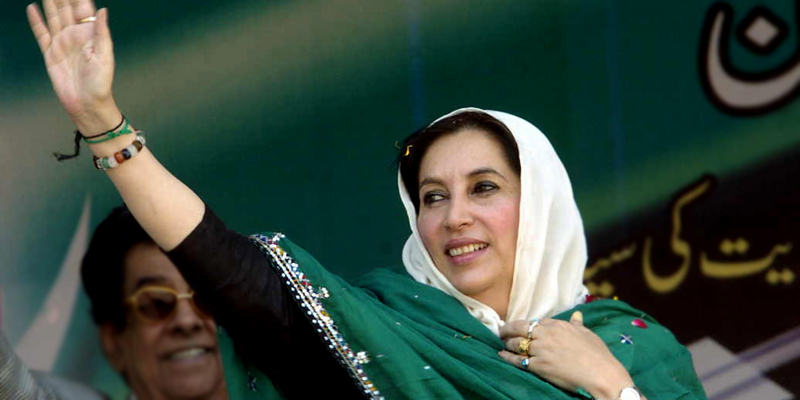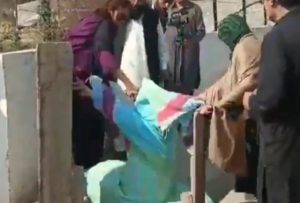NAWABSHAH – Former prime minister Benazir Bhutto is being remembered on her 11th death anniversary today with Pakistan Peoples Party organising a central congregation in her hometown Garhi Khuda Bakhsh in Larkana district of Sindh.
The preparations of a public gathering with regard to her death anniversary have been finalized and senior party leaders are expected to address a rally in this regard.
Sindh government has announced a public holiday on account of the death anniversary of the former premier.
A large number of PPP leaders, activists and supporters have been arriving at the mausoleum to pay homage to the late leader on her death anniversary.
Pakistan Peoples Party chairman Bilawal Bhutto Zardari and PPP co-chairman Asif Ali Zardari among other party leaders will be paying tribute to the former premier in their addresses with the participants at the gathering.
Earlier on Wednesday, Bilawal Bhutto Zardari and Asif Ali Zardari chaired a meeting of the party’s central executive committee CEC).
The participants of the meeting paid glowing tributes to Benazir Bhutto; her sister Sanam Bhutto was also in attendance at the meeting.
Benazir took oath as the first female prime minister of Pakistan on December 2, 1988; she was also the first woman to lead a Muslim state and twice served as the prime minister of Pakistan.
The former premier was assassinated in a gun and bomb attack in Rawalpindi on December 27, 2007, as she was leaving a rally at the Liaquat Bagh in Rawalpindi.
Benazir’s Defiance
After her father was hanged to death, Benazir started her heroic struggle against dictatorship and proved herself to be the absolutely worthy political heir of her father.
After she came back to Pakistan in 1977, Benazir was put under house arrest after the military toppled her father’s government. A year later, the Supreme Court upheld the orders about the execution of Zulfiqar Bhutto.
In 1984, she shifted to England due to strict restrictions on her family, and resided there till 1988.
Benazir successfully led the People’s Party through the 1988 elections. After winning support from a coalition government in the National Assembly, Benazir assumed the Prime Minister’s Office in December 1988.
Benazir, however, struggled to maintain control over power, with both her tenures marked by political and economic instability. Benazir’s government was dismissed on August 7, 1990 by the then President who accused her administration of corruption and nepotism. She also held premier’s office for a second time but assembly was dissolved again.














